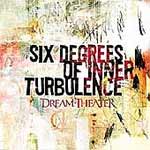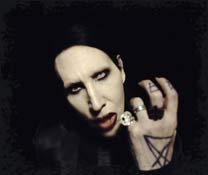Dream Theater Six Degrees of Inner Turbulence
By
Elaine Garvican,
Contributor
Monday, January 14, 2002 @ 2:29 PM
| (Elektra Records)
|
 |
|
 For a band like Dream Theater, there is no such thing as “just another record”. Never a band to do anything by halves, Six Degrees… follows the previous DT trend by once again breaking all moulds and preconceptions – surprising, entertaining and educating the listener, and laying to waste any fears that the world’s leading prog rock band may have been resting idly on their laurels. Not content to merely settle in any area of musical ability in which they could instead excel, this – the band’s sixth studio release – is a masterpiece of epic proportion and a testament to the band’s talent, both individually and when in combination. Written and recorded simultaneously in the early part of last year, the album is quintessentially and recognisably Dream Theater, but arguably their bravest undertaking to date. Lyrically the album explores a wide range of subjects, from human cloning to the search for personal enlightenment, fulfilment and acceptance.
For a band like Dream Theater, there is no such thing as “just another record”. Never a band to do anything by halves, Six Degrees… follows the previous DT trend by once again breaking all moulds and preconceptions – surprising, entertaining and educating the listener, and laying to waste any fears that the world’s leading prog rock band may have been resting idly on their laurels. Not content to merely settle in any area of musical ability in which they could instead excel, this – the band’s sixth studio release – is a masterpiece of epic proportion and a testament to the band’s talent, both individually and when in combination. Written and recorded simultaneously in the early part of last year, the album is quintessentially and recognisably Dream Theater, but arguably their bravest undertaking to date. Lyrically the album explores a wide range of subjects, from human cloning to the search for personal enlightenment, fulfilment and acceptance.
The double CD contains only six tracks – the last, a monumental 42-minute narrative, split into eight ‘acts’, occupies the entire second disc, embellished throughout by choral melody and orchestral score. As great an undertaking as the legendary Scenes From a Memory, Six Degrees itself leads seamlessly from act to act, woven with a recurring, majestic refrain, lifted at times by a lone guitar, at others a full, regal string section. “Solitary Shell” – a perversely uplifting track about a reclusive individual – harks of the calibre of “Awake” and holds some of the most intricate keyboard work Rudess has delivered to date.
At well over 10 minutes, “Blind Faith” comes nowhere near being the longest track of Disc One, (that title going conclusively to “The Glass Prison”), and whilst Dream Theater are veterans of tracks which are longer than a Norwegian summers’ day, the album’s lengthy ballads offer few easily accessible handles for the uninitiated. Too often criticised for irrelevant indulgence, the unparalleled ability demonstrated at length, here will inevitably prove more fuel for a critic’s fire.
The simple, touching opening to “Misunderstood” bleeds into a haunting, longing soliloquy, which, although it would probably be no worse for wear were it several minutes shorter, crescendos into a lavish, powerful plea for comprehension. La Brie’s voice, versatile and strong, portrays an enormous depth and range of emotion, becoming as much an instrument as the signature chorusing of Petrucci’s strings, and adding new dimension and significance to the lyrics.
To pervert a phrase, this is pure, aural Viagra. A classic has been pressed.
****
Due out January 29th, 2002

|




